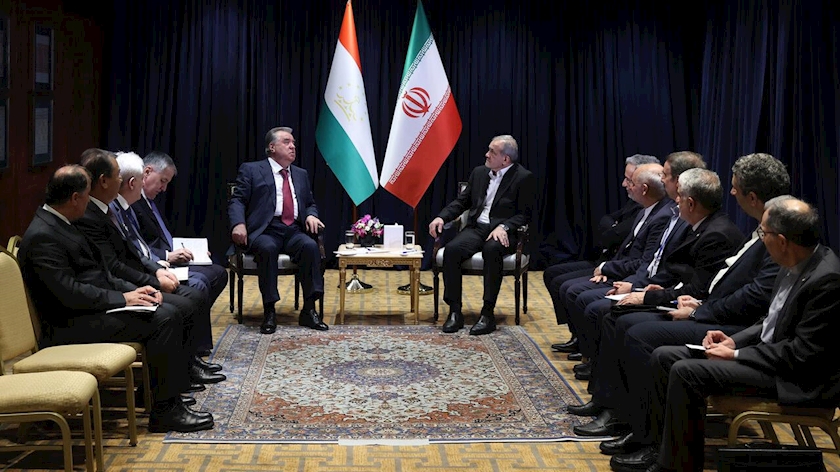Strengthening Bonds: Iran and Tajikistan Emphasize Cooperation Amidst Afghanistan’s Troubles
In a significant diplomatic engagement, Iranian politician Ali Pezeshkian and Tajikistan’s President Emomali Rahmon met on the sidelines of the 79th session of the United Nations General Assembly (UNGA 79) held in New York. The discussion focused critically on Afghanistan, a common concern that unites both nations due to its geopolitical significance and ongoing instability.
Shared Concerns and Strategic Collaboration
Afghanistan, plagued by years of conflict and recent tumult following the Taliban’s resurgence, remains a focal point for neighboring countries. Both Iran and Tajikistan have vested interests in the region’s stability due to historical, cultural, and security reasons. Pezeshkian highlighted the importance of cooperative efforts between Tehran and Dushanbe to assist Afghanistan in overcoming its enduring challenges.
This meeting underscores the intricate regional politics at play. Iran, having faced substantial international sanctions, has nonetheless managed to assert its influence within the Islamic world. This backdrop of resilience and leadership was recognized by President Rahmon, who lauded Iran’s role in fostering unity among Islamic countries.
Tajikistan’s Commitment
President Rahmon expressed his country’s readiness to bolster ties with Iran, specifically through practical measures aimed at deepening cooperation across various sectors. This commitment from Tajikistan marks a significant step in reinforcing bilateral relations, suggesting that both nations are keen to pursue a robust partnership that transcends mere diplomatic goodwill and enters the realm of actionable strategies and initiatives.
A Broader Implication for Regional Stability
The meeting between Pezeshkian and Rahmon is emblematic of a broader regional strategy where bilateral cooperation can serve as a stabilizing force amidst regional uncertainties. Both countries’ focus on Afghanistan is particularly poignant given the latter’s current socio-political flux and the humanitarian crises therein.
In summary, this diplomatic engagement highlights a mutual desire to fortify Iran-Tajikistan relations, reflecting a shared vision for cooperative action to address regional challenges. Pezeshkian and Rahmon’s dialogue signifies a step toward enhanced regional solidarity and stability, with Afghanistan’s plight being a central unifying concern.
For further details on the official intentions and policy frameworks being discussed, readers can visit Tajikistan’s official government website or follow subsequent announcements from the UNGA 79 session outcomes.
This promising rapport between Iran and Tajikistan could prove pivotal in shaping a more stable and cooperative regional landscape in the years to come.
